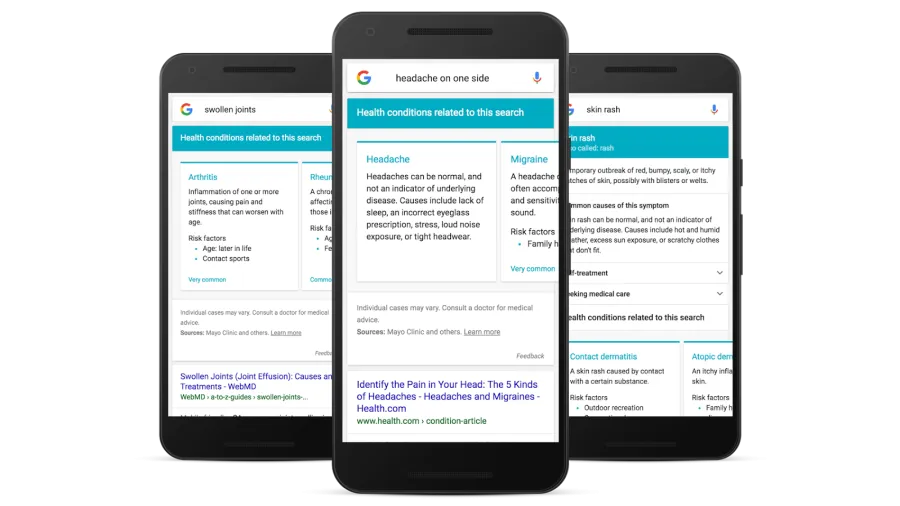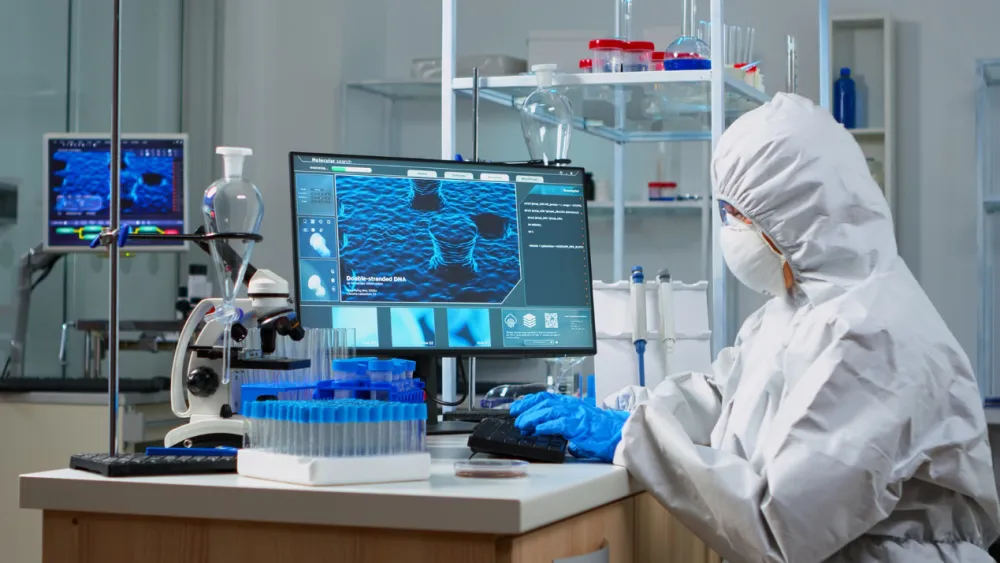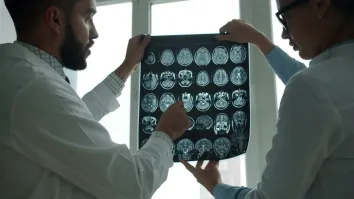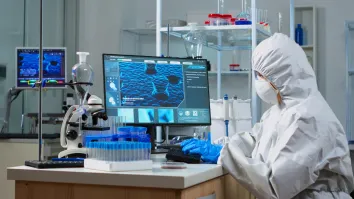
Dr Watson vs Dr Google: Asia battles healthcare data asymmetry
People are googling symptoms more than consulting doctors.
When Parkway Pantai worked with IBM to integrate its decision support tools, they witnessed that their clinicians and nurses got healthcare data in the right context, faster, and more personalised to the patient's needs. Kelvin Loh, chief executive officer of Parkway Pantai's Singapore operations division, says the systems like cognitive computing can read, monitor, and quickly make sense of vast amounts of data for a short period of time.
Following the lead of one of the largest healthcare firms across Asia, other hospitals have also adopted breakthrough technology in their hospitals such as IBM’s Watson in order to improve and speed-up symptom analysis and determine the best treatment. Just this June, IBM opened The Watson Centre at Singapore’s’ Marina Bay, an incubator designed to bring together healthcare organisations to help create solutions to leverage the technology’s capabilities.
“IBM’s new Asia Pacific headquarters is based in the same location, in the heart of Singapore’s financial district. Watson Centre at Marina Bay will act as a center of expertise for almost 5,000 IBM cognitive solutions professionals in the Asia Pacific region alone, including researchers, IBM Watson specialists, data scientists, software engineers, agile developers and analytics experts,” a release by IBM noted.
Additionally, IBM has also been working with hospitals and healthcare organisations across Asia-Pacific, including Bumrungrad International Hospital in Thailand.
Meanwhile, while healthcare technology companies have been developing new, more efficient, and more reliable ways of healthcare diagnosis, there still remains a growing concern among healthcare professionals about patients consulting Google more than their physician. According to Google, roughly 1% of overall searches, 35 million queries per day, in the search engine are symptom-related. “But health content on the web can be difficult to navigate, and tends to lead people from mild symptoms to scary and unlikely conditions, which can cause unnecessary anxiety and stress,” says Veronica Pinchin, project manager of Google Health Search admits.
To address this, Google has been working on Google Health Search, which entails improving their search engine to optimise the search for symptoms. “So starting in the coming days, when you ask Google about symptoms like “headache on one side,” we’ll show you a list of related conditions (“headache,” “migraine,” “tension headache,” “cluster headache,” “sinusitis,” and “common cold”). For individual symptoms like “headache,” we’ll also give you an overview description along with information on self-treatment options and what might warrant a doctor’s visit,” Pinchin says.
By doing this, Pinchin explains that the goal is to help patients navigate and explore health conditions related to the symptoms which were searched by the user. This way, the engine can quickly get to the point where the user can do more in-depth research on the web, or link the user to a talk to a licensed healthcare professional.
“We create the list of symptoms by looking for health conditions mentioned in web results, and then checking them against high-quality medical information we’ve collected from doctors for our Knowledge Graph,” Pinchin says. “We worked with a team of medical doctors to carefully review the individual symptom information, and experts at Harvard Medical School and Mayo Clinic evaluated related conditions for a representative sample of searches to help improve the lists we show,” she adds.
Meanwhile, Pinchin says symptom search, like all medical information on Google, is intended only for informational purposes. The tech giant advises that users should always consult a doctor for medical advice. “We rely on search results, and we reflect what’s on the web. Because of this, your feedback is especially important to us; we’ll use it to keep improving the results we show. You’ll notice in the weeks following launch that when we show symptom search we’ll automatically ask you if the results are helpful,” Pinchin says.
Pinchin adds that Google Health Search aims to cover more symptoms and to extend the search engine function to other languages and internationally. “The next time you’re worried about your “child with knee pain” (even though it’s probably just growing pains), or have some symptoms you’re too embarrassed to run by your roommate, a Google search will be a helpful place to start,” Pinchin adds.
Google Health Search, on the other hand, is not the first time the tech company improved their search engine to facilitate better health information searches. Last 2015, Google unveiled Knowledge Graph, where the engine shows typical symptoms and treatments, as well as details on how common the condition is.
According to Prem Ramaswami, product manager for Google, all of the gathered facts for Knowledge Graph represent real-life clinical knowledge from doctors and high-quality medical sources across the web, and the information has been checked by medical doctors at Google and the Mayo Clinic for accuracy. But Google once again pointed toward professional medical advice over their search results.
“That doesn’t mean these search results are intended as medical advice. We know that cases can vary in severity from person to person, and that there are bound to be exceptions. What we present is intended for informational purposes only—and you should always consult a healthcare professional if you have a medical concern,” says Ramaswami.
On the other hand, while IBM’s Watson seem to be the more credible choice for medical information, people have obviously been referring more to google searches. “I think the challenge is in the environment we are working in now,” says Amiruddin Abdul Satar, managing director and president of KPJ healthcare. “Doctors are working in isolation in our environment at the moment, so it’s not easy for them to refer a patient now to another doctor to ask for a second opinion. That is the first challenge.”
Another challenge which Amiruddin refers to is the cost of innovative healthcare technology such as IBM’s Watson. “I’m sure that they’re not gonna give it for free. We are faced with the biggest challenge of containing our costs. At the end of the day, it’s about how much we can charge patients, and how much see value in this type of technology,” he says.
He adds that healthcare professionals cannot discredit the strong bond between the patient and the doctor. “While the newer generation may refer to the internet most of the time, at the end of the day, they still have to go to the hospital.” Amiruddin adds that there may be other hurdles in using new technologies, such as government and ministry of health regulations. In Malaysia, Amiruddin says the biggest hurdle is the requirements set by the health ministry as to how much the doctors and hospitals can charge.
“This innovation helps take the weaknesses of the human expert and mitigate that, but this is not something that will be embraced by physicians with open arms,” says Ahmad Shahizam Mohd Shariff, chief executive officer of Pantai Holdings Berhad. “There are a lot of experts and physicians involved, and it’s predicated on long years of training and experience.”
“Second opinion exists because human judgment comes into play,” he says. “Having a machine do this is going to be quite an interesting development.” Ahmad Shahizam Mohd Shariff however asserts that he would always prefer a Dr Watson to give me this information than Dr Google. “One of the challenges for healthcare is the asymmetry of information,” he says.



















 Advertise
Advertise





